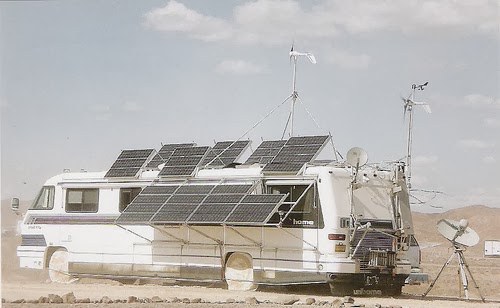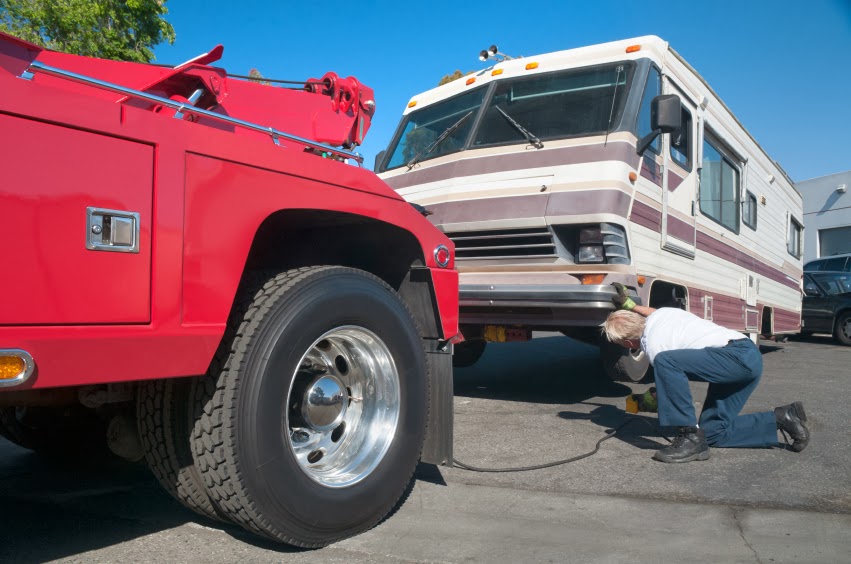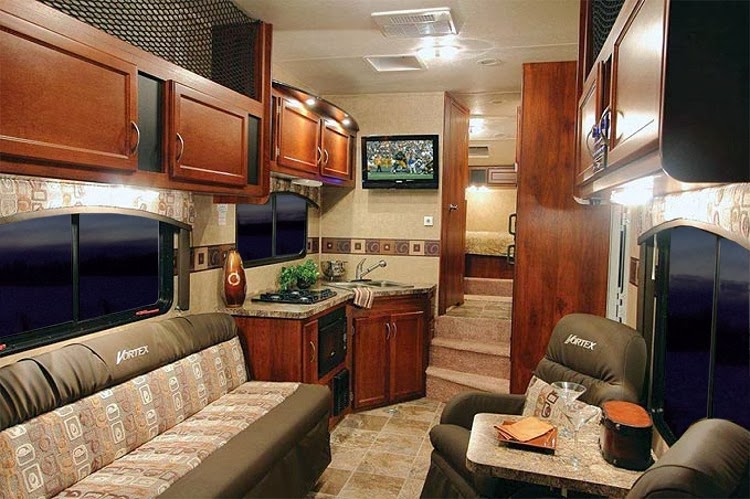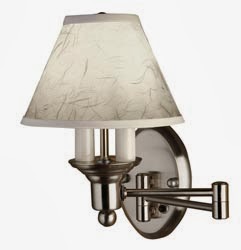
I will always remember the first time I pulled a trailer utilizing a brake controller. We where headed to Texas from Ohio and we where just into the trip when I could hear some buzz on the CB radio. A trailer headed southbound was smoking badly, I looked into my mirrors just to check my trailer and it was me! We where headed down a long hill and I had my foot on the brake pedal just slightly to keep my speed down. Not realizing that this would activate my time controlled brake controller, our 24' cargo trailer was holding back our 30,000 lb motorhome going down hill. I just assumed that when I hit the brakes on the motorhome that the brakes on the trailer would respond equally. Well that was almost 15 years ago and since then I have had the opportunity to use a number of different braking systems during that time. The one thing I have learned is before you start out on that maiden rv adventure with your trailer, take the time to research the various
brake controllers available and how they operate and perform.
Most brake controllers on the market today can be divided up into two categories, time delayed and proportional. The time delay models tend to feature preset power levels whereas the proportional ones typically use motion sensor technology. Each has its place in the towing world and you will find RV owners who swear by both types. The one you’ll need will largely depend on what type of towing set-up you have and your personal driving preferences.
A timed brake controller will work best for the RV'er who isn't in a race to get to their destination and tends to run the slow lane at their own pace leaving lots of room around them. The way a time delayed trailer brake controller works is once the brake pedal is applied a small amount of power is sent back to the trailer brakes. At this point a delay exists from when the brake pedal was pushed to when the unit reaches the user set, maximum power output. The delay can be shortened or lengthened, but behaves the same whether you are coming to a slow easy stop or a slam on the brakes panic stop. If the delay is set too low, the vehicle will do most of the braking and set too high, the trailers brakes will be over worked. So, although a timed delay system is less expensive, easier to install and use, they do take more finesse while driving and possibly more adjustment as well.
Proportional brake controllers came along to make stopping a trailer a whole lot easier for the driver.
 |
| Tekonsha Prodigy P3 |
With these systems once the brake pedal is applied, a motion sensing device determines how fast the tow vehicle is stopping and applies power to the trailer brakes equally as fast. This allows the trailer to stop at the same rate as the tow vehicle providing a much more controlled experience during all situations. Proportional controllers are activated by the brake pedal switch and controlled by a pendulum circuit that senses the vehicle's stopping motion and applies a proportional amount of voltage to the trailer's brakes. One of the top models in this category is the
Tekonsha Prodigy P3 brake controller, offering a system that's smooth and proportional with a multi-functioning LCD display and featuring the most advanced easy-to-use diagnostics.
Whichever brake controller you choose, you’ll also need to determine whether or not your tow vehicle is pre-wired to accept one or not. Most manufactures of pick up trucks that include a tow package include a connection under the dash. In which case, an adapter assembly by the manufacturer of the brake controller you choose is all that is required. In these situations, incorporating the brake controller into your vehicle's braking systems is simply a plug and play installation.
For more information on braking systems and braking controllers, please
contact us at RV Upgrades. We have online experts ready to chat with you about the various braking system components available. You’re also welcome to call us at (866) 332-7881 or drop us a note via our
Facebook page.

























+(1024x685).jpg)